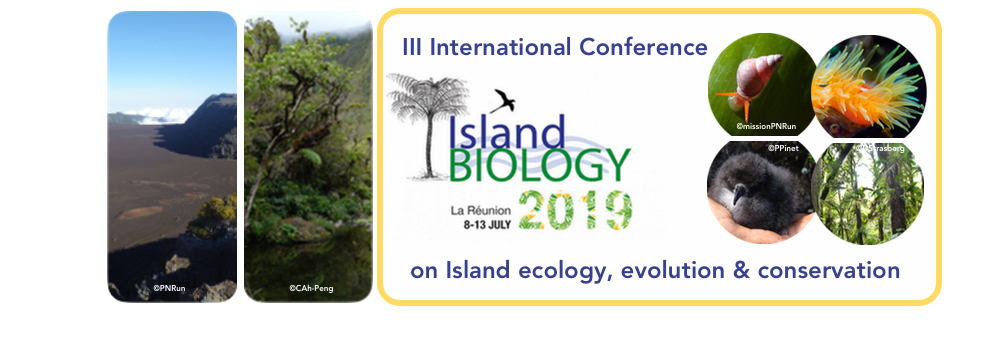In the 1960's, as part of the interest for island biology, one of main interest of botanists was to analyze plant mating system syndromes on islands. An influential model for interpreting mating system patterns is based on pollination processes and has been popularized under the verbal model « Baker's law » (Baker, 1955). This “law” proposes that ‘with a self-compatible individual a single propagule is sufficient to start a sexually reproducing colony, making its establishment much more likely than if the chance growth of two self-incompatible yet cross compatible individuals sufficiently close together spatially and temporally is required' (mate availability). A second line of argument proposes that ‘self-compatible flowering plants are usually able to form some seed in the absence of visits from specialized pollinating insects, which may be absent from the new situations' (pollinator availability). This model, addressing not only mating systems on islands but more generally of colonizing species (Baker and Stebbins, 1965) has been, since its publication controversial. In 1966, Carlquist argued that ‘if dioecious stocks immigrated to the [Hawaiian] islands, Baker's Law must be in part abandoned'. More than fifty years later, estimates of plant mating system has accumulated, in particular thanks to the intensive use of molecular markers. In the recent years, theoretical models have also made predictions about the evolution of colonization ability and mating system, with mixed support for Baker's law (Cheptou, 2012). In this talk, I will present the recent empirical results and theoretical predictions addressing the link between colonization and mating system and how it can help to think about mating system syndromes on islands. The results suggest that such island syndromes may not be unequivocal. Clarifying ecological scenarios are key to interpret plant mating systems on islands.

|
|
|
|
Plant mating systems on islands
1 : Centre d'écologie fonctionnelle et évolutive
(CEFE)
-
Website CNRS : UMR5175
Campus CNRS - 1919 route de Mende - 34293 Montpellier cedex 5 -
France
|
| Online user: 61 | RSS Feed |

|
 PDF version
PDF version